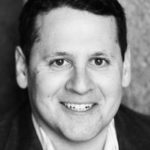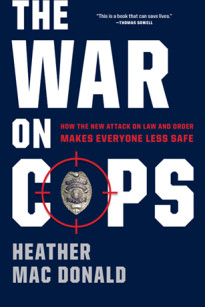Following the murder of five police officers during Black Lives Matter protests in Dallas, Heather Mac Donald’s The War on Cops has proven grimly prescient. In the book, Mac Donald contends that the Black Lives Matter narrative of institutional racism in law enforcement is a fiction—and that the pervasive anti-cop rhetoric echoed by those in the Obama Administration and the media has inspired anti-police violence, curbed pro-active policing and ignited a rise in violence in America’s inner-cities.
Interestingly, one of the most notable figures to challenge the false Black Lives Matter narrative is FBI Director James Comey, more recently in the news for his decision to recommend no charges against Hillary Clinton in connection with her use of a private email server.
Mac Donald writes of Comey in a highly relevant section of The War On Cops titled “The Ferguson Effect Is Real:”
If present trends continue, we will soon be back to the pervasive urban violence that FBI director Comey described so eloquently in his remarks at Chicago Law School.
One prominent public official raised a firestorm by sounding a contrarian theme on the topic of policing and crime while racially charged anti-cop sentiment ran high. The FBI director, James Comey, was speaking at the University of Chicago Law School in October 2015 when he observed that violent crime was rising in many cities across the country. The likely reason, he said, was a drop in proactive policing. The strident reaction to his comments, not least from the White House, demonstrated how ideological the subject had become.
But Comey was merely confirming the obvious. The Major Cities Chiefs Association (as mentioned above) had recently met in an emergency session to discuss the homicide surge. The blog FiveThirtyEight looked at homicide data from most of the nation’s 60 largest cities up through September 2015 and found a 16 percent increase over the same period in 2014. Comey’s statement that “most of America’s 50 largest cities have seen an increase in homicides and shootings this year, and many of them have seen a huge increase” was therefore hardly news.
It should also not be news that officers have been backing off of discretionary policing. The available data show a decline in police activity. In New York City, summonses for low-level, quality-of-life offenses like public urination and drinking—a prime gauge of proactive enforcement— were down 26 percent in the first half of 2015; arrests in every crime category were down 15 percent as of the end of October 2015. In Los Angeles, arrests were down 10 percent through the same period. Baltimore arrests dropped a third through November 2015; misdemeanor drug arrests were down nearly two-thirds.
Mayors have noticed the results. “We have allowed our police department to get fetal,” said Mayor Rahm Emanuel of Chicago in October 2015 during an emergency crime meeting of police chiefs and mayors in Washington, D.C.
Yet Comey’s comments, amply backed up by evidence, landed him in hot water. Most remarkably, President Barack Obama had the temerity to accuse him of shoddy, biased analysis. “We do have to stick with the facts,” Obama told the International Association of Chiefs of Police in Chicago in late October, in a thinly veiled rebuke to Comey. “What we can’t do is cherry-pick data or use anecdotal evidence to drive policy or to feed political agendas.” The idea that Obama knows more about crime patterns and policing than the FBI director is ludicrous; the one with a “political agenda” is Obama, who has spent the last two years disseminating the dangerous lie that the criminal-justice system is racially biased.
In November 2015, the acting chief of the Drug Enforcement Administration, Chuck Rosenberg, seconded Comey’s observations about the decline in proactive policing. Officers were feeling “trepidation” about ending up on the evening news even if they “do everything right,” Rosenberg told reporters. The White House dressing-down was immediate. Rosenberg had spoken “without any evidence,” press secretary Josh Earnest retorted.
Other longtime critics of the police have been just as dismissive of the Ferguson effect. These critics simultaneously deny that there is a crime increase, that officers are reluctant to engage, and that such reluctance (if it existed) could have anything to do with the allegedly nonexistent crime increase. The skeptics’ hostility to acknowledging the decrease in proactive policing seems puzzling at first blush. After all, they have spent the last year charging that pedestrian stops and quality-of-life enforcement oppress minority communities. The police have gotten the message and are doing much less of both. You would think that this would be a welcome development to the anti-cop Left. Instead, its members vehemently deny that officers are backing off. Why? Because the resulting crime increase shows that policing does, in fact, lower crime.
To be sure, crime has not risen yet to the levels of the early 1990s, as Obama and other critics of the police point out. That is hardly a refutation of the Ferguson effect, however. Crime dropped 50 percent nationally over the last two decades, and it would be highly unusual to give back all that gain in just one year. But a 16 percent homicide increase in at least 60 major cities is startling enough. If present trends continue, we will soon be back to the pervasive urban violence that FBI director Comey described so eloquently in his remarks at Chicago Law School.
Listen to our interview with Heather Mac Donald on The War On Cops in full or in parts below:

